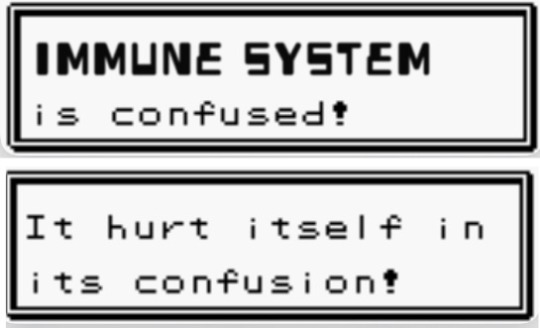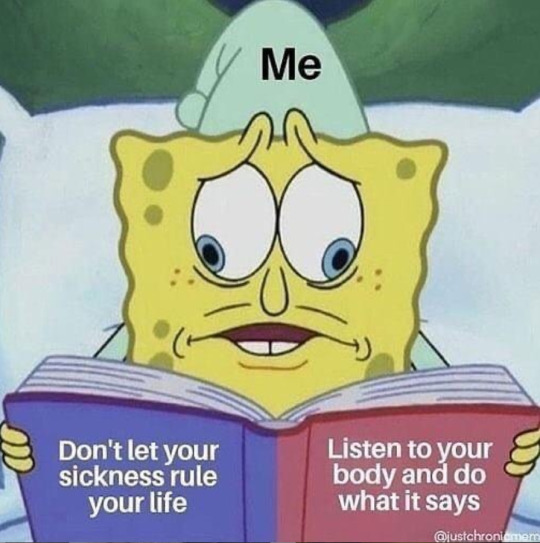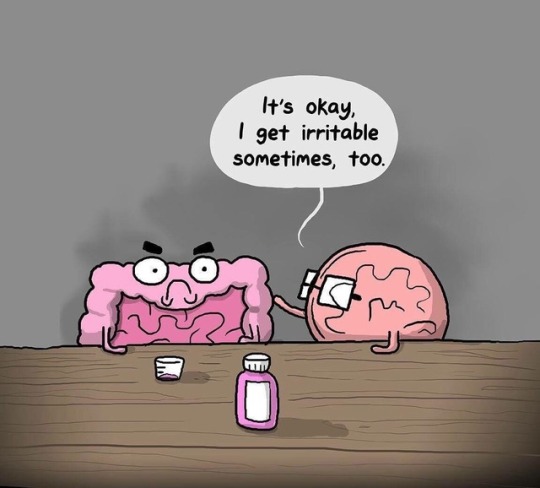Link
Have you ever read None of the Above or This is My Brain in Love? They’re both by I.W. Gregorio, a great Y.A. author and surgeon (!!!!!) who’s big on exploring mental health, especially in immigrant communities and communities of color. While I know I said that this blog would be mostly include posts on mental health when it connects to physical illness, I thought that this was a really important to resource to share. It includes hotlines, online resources, and tips for talking to both parents and kids/teens about mental illness.
P.S. I’m sorry I haven’t been posting much -- This blog was originally for a class project, but I’d like to keep it up. I’ll try to be better about it! I hope y’all are doing as okay as you can be.
0 notes
Link
There are foundations out there for all sorts of illnesses and research. Many of them have a page for pediatric patients and resources for teens -- but this one flips the script. InvisiYouth is a nonprofit focused on lifestyle management for teens and young adults with both visible and invisible illness of all sorts, including both traditionally physical and mental issues. It’s run by advocates for young people, rather than medical specialists (medical specialists are great too though, so make sure you’re accessing as many perspectives as you can). Their Spotlight Series blog features stories from teens with chronic illness and there are opportunities to donate, volunteer, and host events for the charity. Check it out!
0 notes
Photo

the best way to explain autoimmune disease to others (via @kuroown when I was in the hospital and this joke she made still makes me laugh)
2K notes
·
View notes
Text
welcome!
Maybe you’ve just been diagnosed with a chronic illness. Maybe you’ve had it for a long time. Either way, you’re probably still growing and learning how to manage it, because that’s something that never stops. I was diagnosed with Crohn’s Disease when I was 16 and that’s been my experience. Everyone’s story is unique, so the depictions of chronic illness and the suggestions you find in this blog might reflect your life exactly, but they also might not. Hopefully, you’ll find something that will help you cope with what you’re going through, even if you only learn something because you realize how much a book character or a character is not about you. I’ve tried to include resources that, if I’d had them as a teen, would have made me feel less alone.
P.S. This blog looks at all aspects of chronic illness from a physical standpoint, so while it contains a couple of mental health resources, I’d recommend checking out the main Mental Health Resources for Adolescents post to find resources for anxiety, depression, and more if that’s what you’re mainly interested in.
P.P.S. Header image courtesy of: http://thepatternlibrary.com/#jade
1 note
·
View note
Link
You’ve got a right to accommodations
Did you know that legally you could be entitled to accommodations at school or work based on your illness? This pamphlet from the U.S. Department of Education’s Office for Civil Rights will tell you everything you need to know. It explains what illnesses are covered by the law and what schools – from kindergarten to college – are required to do to accommodate you. If you encounter resistance when talking to your teachers or employers, or else just didn’t realize that you could get accommodations at all, this pamphlet is for you.v
0 notes
Photo

Dealing with chronic illness
If you’re new to chronic illness or just figuring out how to deal constructively with your existing one, this guide is for you. It starts with the basics (“What is a Chronic Illness?”) and takes you through the coping process, from acknowledging your own feelings to dealing with everyone else’s reactions. It includes a section on taking charge of your healthcare and provides a list of questions that you can ask your doctor. There is no perfect way to live your life after you’ve been diagnosed with chronic illness, but this guide can start on the journey to getting as close as you can possibly get.
0 notes
Photo

GirlsHealth.gov
Don’t let the 2003 Disney Channel Original Movie-esque design of this website fool you: it’s an incredibly thorough resource put together by the U.S. Government Office on Women’s Health. It covers all aspects of your life, including living with illness and/or disability. It has detailed practical tips for everything you can think of, from becoming independent to talking to your doctor and managing your day-to-day life. Be forewarned: the website hasn’t been updated since 2014, so some of the links to outside sources may be broken. However, all the information native to the site is still accessible and applicable today.
0 notes
Link
Okay, but how do I navigate my feelings?
Like we’ve been saying, mental health is a really important part of physical health. This toolkit from Global Genes, a nonprofit dedicating to fighting rare diseases, contains suggestions for communicating with your parents, research-based tips and success stories, and a list of resources that you may find helpful in your day-to-day life.
0 notes
Photo

Chronic Illness Humor Instagram Account
Sometimes, you just need some memes to get you through the day. The @chronicillnesshumor Instagram account puts all that hard work you do trying to relate to others like you into a funny, bite-sized form. It’s just one more form of art (yeah, I said it) that chronically ill people are using to express how they feel. They’ve got 71.8k followers – will you become one?
Photo source: https://www.instagram.com/p/B_3fMFDAOxg/
0 notes
Link
Invisible Disability Project
Even if you don’t consider your illness a disability, the Invisible Disability Project is worth checking out. It’s an intersectional nonprofit that, according to their website, “envisions a world where people with unseen disabilities no longer encounter barriers to personal relationships, health care, community, education, employment, technology, media representation, laws and policy.” Their main projects are “This is Me” videos, where people talk about the stigmas they face, and “Unseen Zines.”
#invisibledivsabilityproject#mentalhealth#intersectionality#actvisim#stigma#chronicillness#beaware#onlineresources
0 notes
Link
Podcasts about the invisible illness life
A lot of chronic illnesses, both physical and otherwise, are impossible to see from the outside. People might not know you have them just by looking at you and this can be either empowering or isolating. The podcasts in this list cover everything from Inflammatory Bowel Disease (IBD) to Ehlers-Danos Syndrome. Real people tell stories of the hardships they’ve faced, the stigmas they’ve battled, and the light they see ahead.
0 notes
Text
helplines
Chronic physical illness can lead to serious mental illness. If you need help right way, consider calling these hotlines (list compiled by Society of Adolescent Health and Medicine):
Campaign Against Living Miserably (CALM): Visit www.thecalmzone.net or UK residents call 0800-58-58-58
Crisis Text Line: Visit www.crisistextline.org/ or Text “START” to 741-741
Lifeline Crisis Chat: Visit www.crisischat.org/ to chat with crisis centers around the U.S.
List of International Suicide Hotlines: Visit www.suicide.org/international-suicide-hotlines.html
Love is Respect: Visit www.loveisrespect.org/, text “LOVEIS” to 22522, or call 1-866-331-9474 to talk with a peer advocate to prevent and end abusive relationships
National Eating Disorder Association: Visit www.nationaleatingdisorders.org/ or call 1-800-931-2237
National Suicide Prevention Lifeline : Visit www.suicidepreventionlifeline.org/ or call 1-800-273-TALK (8255)
0 notes
Link
More information on mental illnesses
Mental illness is physical too. A lot of it has to do with messed-up brain chemicals that simply won’t leave you alone. This blog doesn’t focus on this type of physical illness, but if you would like to learn more about it, or have more questions about any mental issues you might have that stem from your physical illness, check out this list of resources. It’s got links to online resources, apps, medication guides, and helplines that might help you figure things out.
0 notes
Link
You don’t have to put your love life on hold.
Maybe you feel like you’re wearing sick-colored glasses: you see everything through the lens of your illness because you always have to factor it in to what you’re doing. Well, dating isn’t any different. It’s always important to find a supportive partner and that’s a million times truer when you need them to understand and be there for you when you’re not feeling well. Teen Vogue interviewed people with chronic illness and psychologists so that you can know exactly what you need to do.
0 notes
Video
youtube
@hankschannel on YouTube
You may’ve heard of Hank Green, author of An Absolutely Remarkable Thing. He’s the brother of John Green, YA lit author of The Fault in Our Stars and Turtles All The Way Down fame. Hank has ulcerative colitis (UC), a digestive disorder that impacts his day to day life. Hank and John have several YouTube channels together, and hankschannel has videos where he speaks candidly about his experiences with UC. He explains the road ahead and covers all aspects of living with a chronic illness – managing expectations, talking to your loved ones, and coming to terms with your new normal. To get started, check out “Living with a Chronic Disease” above and “The Sudden Obliteration of Expectation” (https://www.youtube.com/watch?v=cCNW9jO7EyM).
0 notes
Link
Getting ready to go to college? In college already?
College is ALREADY stressful, but add having a chronic illness on top of it and things are suddenly a lot harder to handle. These tips from Teen Vogue are for incoming college students, but they can also be useful for college students who have just been diagnosed. The gist: make sure you’re taking care of yourself and reaching out to all the available resources. As scary as it is, you never know what’s going to happen and you want to be in control as much as you can.
0 notes
